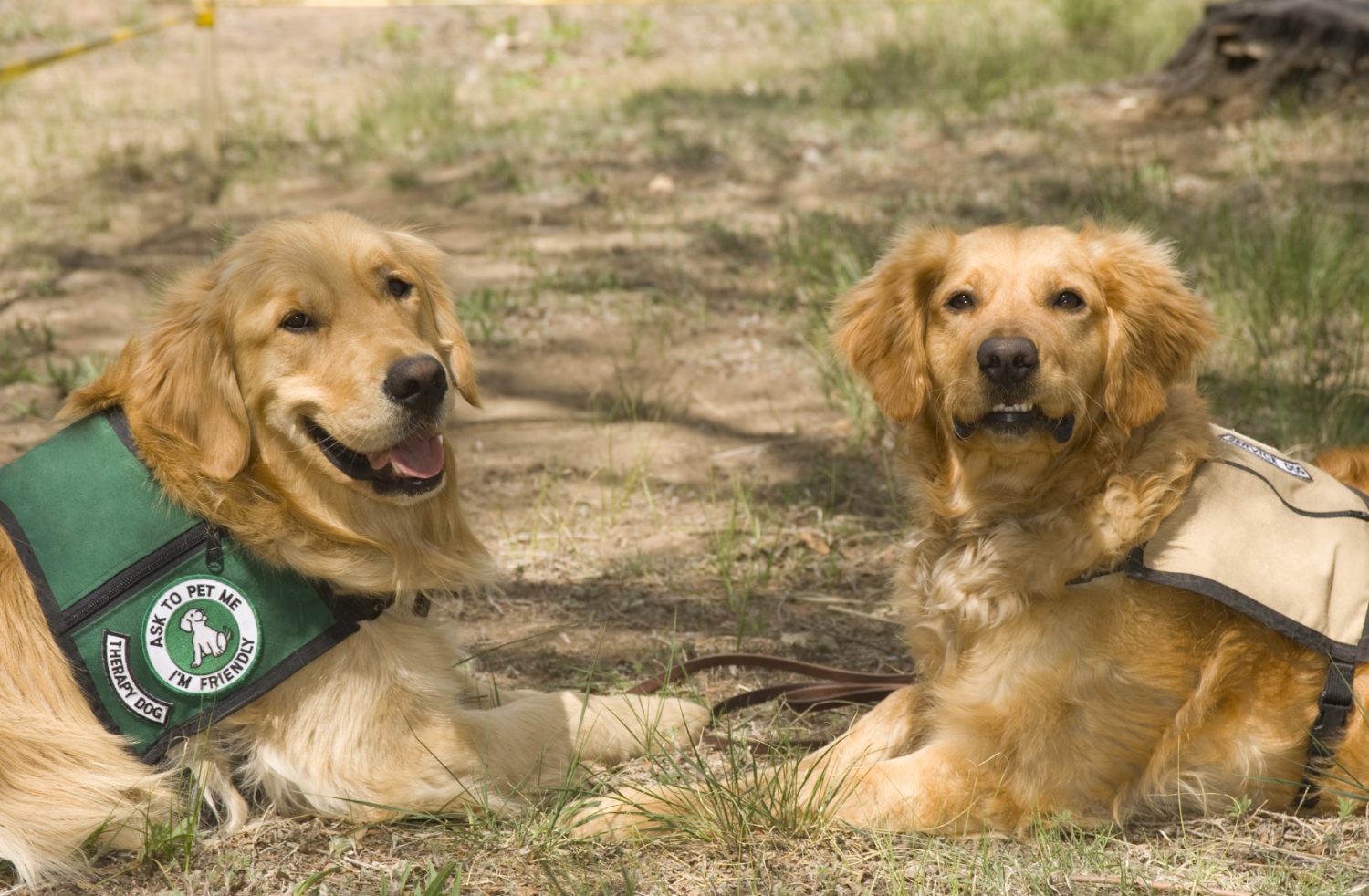Canine Heroes: How Service Dogs Change Lives
 Most dog lovers know at least a couple of stories about a daring rescue by a four-legged hero or a dog who brightened a ward at the local children’s hospital. Dogs are amazing animals who are able to discern our deepest fears and respond to danger and distress. But, for the men, women, and children living with emotional or physical illnesses or disabilities, service dogs can be, in fact, life changing.
Most dog lovers know at least a couple of stories about a daring rescue by a four-legged hero or a dog who brightened a ward at the local children’s hospital. Dogs are amazing animals who are able to discern our deepest fears and respond to danger and distress. But, for the men, women, and children living with emotional or physical illnesses or disabilities, service dogs can be, in fact, life changing.
What is a Service Dog?
According to the Americans with Disabilities Act (ADA, 1990), a dog is considered a “service dog” if he or she has been “individually trained to do work or perform tasks for the benefit of a person with a disability”.
In order for a service dog to be matched with his or her human “handler”, he or she must go through rigorous training in a variety of areas that are dependent on the needs of the future human guardian. This could include assistance dogs trained specifically to respond to those with serious mental illness, to aid those with Post Traumatic Stress Disorder as in the case of war veterans, or to provide practical day-to-day physical assistance for those with limited mobility.
While all dogs (in our opinion) provide some level of emotional support through bonding and companionship, in order for a dog to legally be recognized as a service dog, he or she must be trained to alleviate challenges associated with the disability they have been matched with.
Aside from the federal definition of a service dog, some states legally recognize therapeutic and emotional support animals. If you are interested in acquiring a service dog or finding out more about trained therapeutic dogs, we recommend doing research on legal definitions and training requirements, since some companies do not adhere to these guidelines.
What Do Service Dogs Do?
A better question would be “What DON’T they do?”, because assistance dogs provide so many types of support!
Mobility Assistance
These canines are trained to work with those who have physical disabilities that limit their mobility. Dogs provide assistance by picking up and carrying
objects, fetching needed household items, opening doors, and a myriad of other tasks.
Guide & Hearing Assistance
Guide and Hearing dogs provide support to those with visual or hearing impairments. Guide dogs offer a range of support in the area of mobility, helping the handler navigate sidewalks and street crossings while avoiding obstacles. Hearing assist canines bring attention to door bells, alarms, smoke detectors, and other alerts.
Medical Assistance
These incredible dogs are trained to anticipate and respond to early warning signs of a possible medical emergency, which could include an epileptic seizure, dangerous diabetic blood sugar fluctuations, impending fainting spell, or significant changes in blood pressure. Training often includes getting his or her human guardian to safety, assisting with medication, and even contacting 911.
Mental Health Assistance
More recently, there has been a rise in the acceptance of training specific to psychiatric and trauma support. These dogs can be trained to respond to a wide range of symptoms, including dissociative states, panic attacks, night terrors, and hallucinations. They are trained through techniques such as “deep pressure therapy” and “blocking”, which creates physical space between the handler and crowds or congested areas. Trauma (or PTSD) support dogs have proven to be effective in helping combat veterans overcome the extreme and limiting effects of panic disorder and depression.
These are just some of the many areas in which service dogs have made incredible strides in helping individuals overcome challenges and limitations associated with disabilities. And, canines can be “working dogs”, as many of us recognize the bravery, skill, and intelligence of police and military dogs working alongside their human handlers. Truly, dogs never cease to amaze us with their loyalty and adaptability – and, of course, their delight in making us happy.
If you would like to learn more about service and working dogs, Assistance Dogs International offers many resources and links to local chapters and a member database. Our team at Oakland Veterinary Referral Services is happy to provide some suggestions for local trainers and service dog resources.


